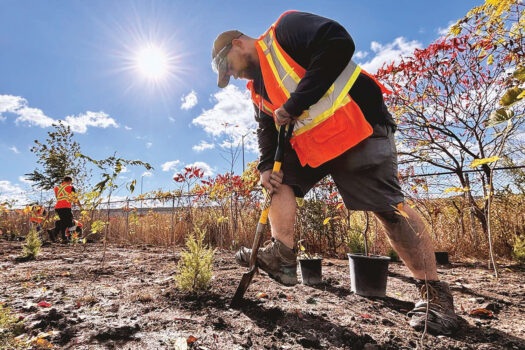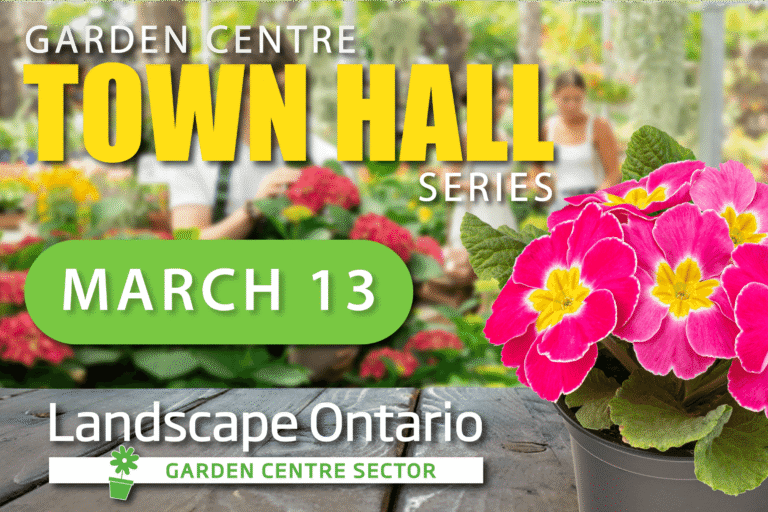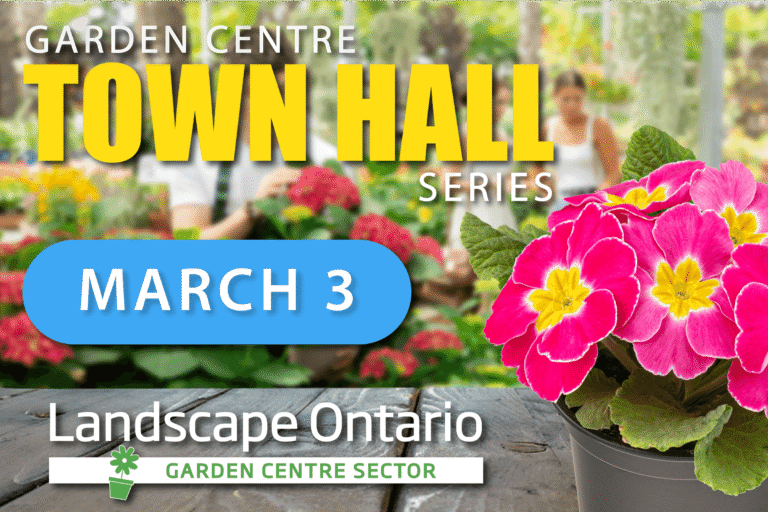By Peter Scholtens
There are over 400 species of plants considered invasive in Ontario.
These plants affect a wide range of ecosystems and crops, from farmland to riverbeds. Control of invasive plants creates a huge drag on the economy, including $2.2 billion in weed control and lost production.
On Oct. 13 and 14, I attended the annual Ontario Invasive Plant Council (OIPC) annual meeting and conference in Prince Edward County, representing Landscape Ontario. As attendees, we had the opportunity to take field trips to see how local ecosystems are affected by invasive species. Discussions took place on the implications of action, or inaction, against the alien invaders. Workshops outlined current work in the field against invasive species and strategies to fight invasive plants.
Conservation authorities, responsible for management of natural areas, struggle to maintain biodiversity against invasive plants. It’s a complicated issue with so many different invasive plants from different sources, and problems in the field. It’s difficult for government departments and agencies to determine who is responsible and where to put efforts.
Some work has taken place in the province in the fight against invasive plants. OIPC, a non-profit, multi-agency organization founded in April 2007 to coordinate a provincial response to the growing threat of invasive plants, consists of conservation authorities, academic institutions, private consultants, industry and environmental non-government organizations, as well as all levels of government.
Of interest to the nursery and landscape trade were workshops discussing current government programs to fight invasive plants. These workshops highlighted gaps that government agencies identified in the quest to control invasives. The strengths identified were good programs that monitored existing invasive species and searched for new problems.
The gaps included a lack of clear responsibility, as the current roles are not clear. The Ontario Ministry of Agriculture, Food, and Rural Affairs (OMAFRA) and the Ministry of Natural Resources (MNR) need to clarify which agency is responsible for specific problems in the field. Legislative and regulatory gaps were also identified, allowing the entry of new species and the spread of invasive plants once they’ve entered the province.
The MNR is currently undergoing a review to determine the strengths and weaknesses of current legislation and regulation. This report will be released at the end of March 2012. It will be used to establish the need for new legislation and regulation to control the entry and spread of invasive species.
During the conference, there were numerous opportunities to network and discuss issues with other attendees. Several people spoke about their plans to send staff to educate retail garden centre employees regarding invasive plants. They hope garden centres could educate the public about growing the right plant in the right place.
Invasive plants in home gardens have become an issue for people who own property adjacent to natural areas. Retail garden centres that sell water plants will be a particular focus (along with aquarium and pet stores). This is because at least two Eurasian water plant species have recently escaped into the wild and are the subject of eradication efforts in the Trent and Ottawa Rivers. The source of these escapes is thought to be local retail garden centres. MNR staff hopes to reduce the risk of this happening again, so they plan to reach out to retail outlets selling these plants and others like them.
It was evident at the conference that government agencies consider invasive species a special concern, and they plan to address the problem. The nursery and landscape trade is currently being identified as a source for the introduction of invasives into natural areas. The landscape and nursery trades need to take some ownership of and responsibility for this issue. Some believe it is to our benefit to be aware of these issues, educate ourselves, and our customers, and perhaps even to begin to regulate our own behaviour before the government begins to do it for us.
Peter Scholtens of Verbinnen’s Nursery in Dundas serves on LO’s Environmental Committee.








